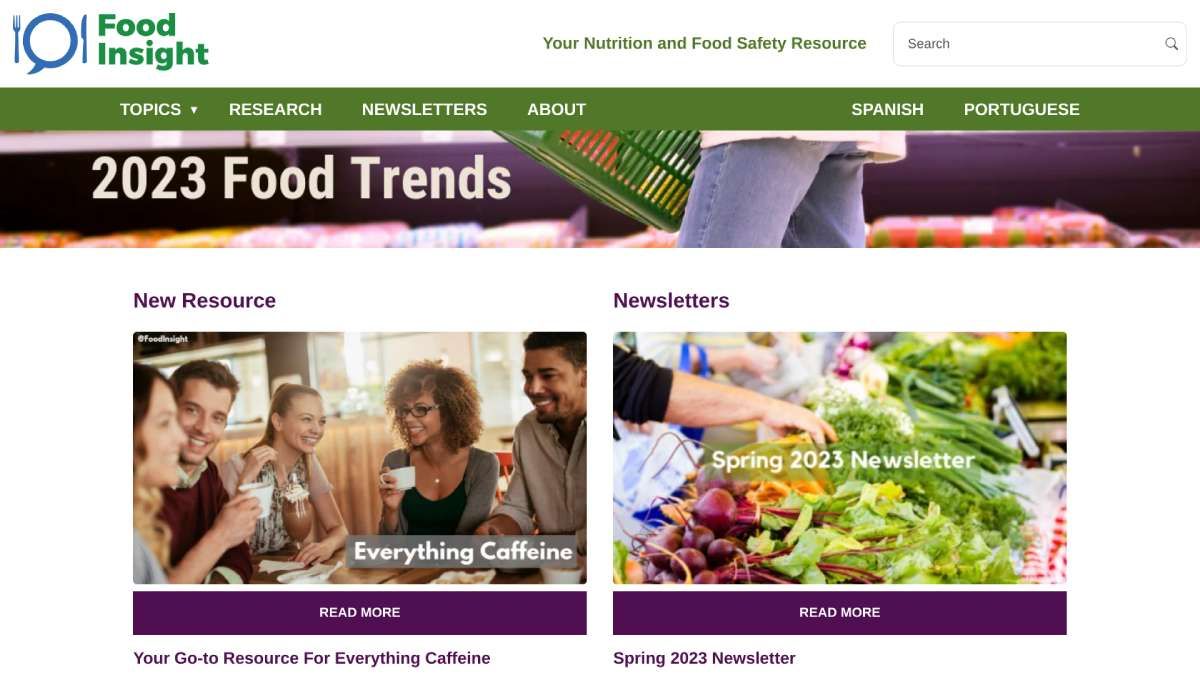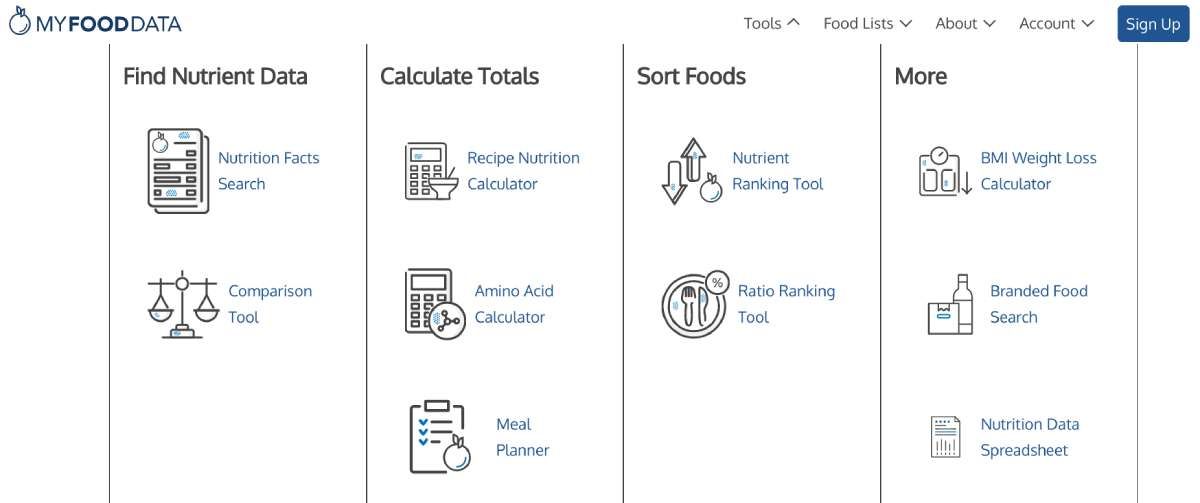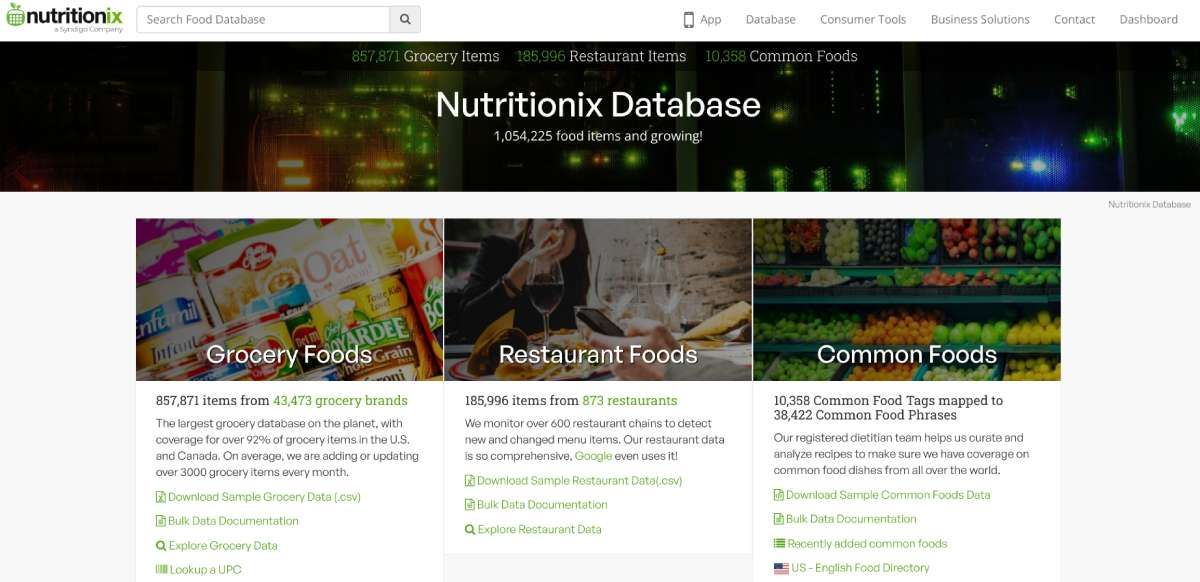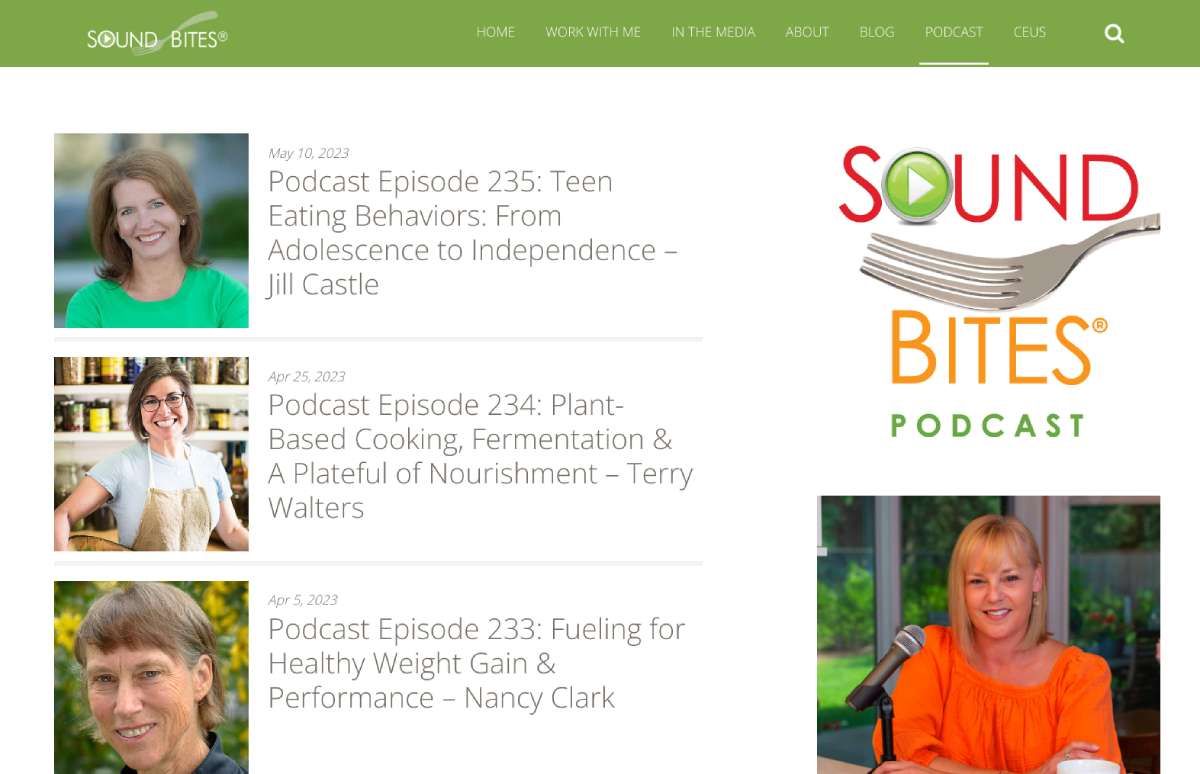There are too many self-styled nutrition experts on the Internet whose advice you should take with a grain of salt (even if they don’t recommend it). Instead, if you know where to look, there are many evidence-based resources that will provide you with reliable, accurate, and practical nutritional information. From nonprofits to doctors, here are five places on the web to get science-backed nutrition facts.
1. Food Insight (Web): Layman’s Guides to Understanding Nutrition
Food Insight is a layman’s guide to finding scientific information about food, powered by the International Food Information Council (IFIC), a non-profit consumer research organization dedicated to food information and food safety. Most of the data is in the form of articles and blog posts that delve into a topic while keeping it easy for the average person to understand.
You can browse items by diet, ingredients, labels, nutrients, manufacturing, safety, science, sustainability, and sweeteners. The site also has a powerful search for quickly finding what you’re looking for. While there are new articles every week, you may want to sign up for the quarterly newsletter after initially browsing the site and learning about the nutrition facts. It will give you all the scientific nutrition updates you need to know without having to check the site regularly.
One of the coolest things you’ll find on Food Insight is the Go-To resource for everything caffeine, where they’ve compiled a variety of information about it in one place. You can check your “Caffeine IQ”, understand the various sources you unknowingly consume it from, and learn how to include healthy amounts of it in your daily intake. And be sure to also check out the Resources section for insights from IFIC’s consumer surveys on food and health.
2. NutritionFacts.org (Web): Evidence-Backed Nutrition Research on Plant-Based Diets
Physician Dr. Michael Greger started NutritionFacts.org after becoming frustrated with the amount of incorrect or unscientific nutrition advice on the internet. The site’s goal is to present only research and evidence-based facts about what we consume through videos, podcasts, and blog posts.
Dr. Greger is an advocate of a whole-food, plant-based diet and has been publicly critical of animal-based food products. The site hosts over 2000 videos on various health and nutrition topics such as diets, diseases, ingredients, food products, etc., and there is a “video of the day” to get new information every day. If you’d rather read, start with the free ebook Evidence-Based Food Guide or head over to the blog for an organized way to find all the information you want.
NutritionFacts.org has several other free resources for patients and doctors, including infographics, templates and checklists to learn more about our consumption. Dr. Greger also created a dietary pattern called the Daily Dozen, a checklist to remind yourself to include the healthiest foods and their ideal portions in your daily diet.
You should also check out the Nutrition Facts with Dr. Greger podcast, one of the best food apps to make nutrition easier. They are short 15-minute episodes where Dr. Greger chooses a topic and debunks common myths while explaining scientific facts.
MyFoodData, at its core, is a meal planner and daily food logging app for those who want to keep track of what they eat and what nutrients their body is getting. But the best part of the site is a series of online web tools that cover all things nutrition.
You can search or browse a food to know its nutritional facts, and the database also includes many branded prepackaged foods. The nutrient rating tool classifies foods according to those with the most or least nutrients, and you can also filter them by food groups. The comparison tool lets you check the difference between two foods based on protein, carbs, calories, sugar, and fiber.
Perhaps MyFoodData’s ace in the hole is the huge nutrition data spreadsheet. That’s right, the entire database used by MyFoodData’s tools is available as a free Google Sheet or Excel file that you can download and use as you wish. In fact, there’s another free spreadsheet for those looking for detailed fat breakout data that isn’t available in the main file.
4. Nutritionix (Web): Best Searchable Database for Food, Groceries, and Restaurant Meals
You can always do a Google search for any food to get quick results on their nutritional values. But these aren’t always reliable, especially as you get more specific or exotic. If you want a large, searchable database of trusted, verified nutrition information, try Nutritionix.
The database is divided into three main categories. Groceries, with over 850,000 items from over 43,000 brands, will allow you to quickly find information on any packaged item you might find in supermarkets. Restaurant Foods includes nutritional information for menu items in popular fast food chains, desserts, bakeries and restaurants. And finally, “common foods” are the regular foods you use around the house, such as vegetables, meat, dairy products, and other foods.
For each item, Nutritionix displays a nutrition facts label as seen on the back of the products. Choose the portion and you will find all its nutrients and values. A pie chart also breaks down calories by protein, fat, and carbohydrates. Nutritionix also shows how long it would take to burn off those calories through walking, running and cycling exercises.
5. Sound Bites (Web): A Nutrition Podcast Featuring Food Experts
Melissa Joy Dobbins is a registered dietitian nutritionist with a master’s degree and hosts the Sound Bites podcast to share nutritional information while talking to nutrition experts. Every guest is credible and accredited, with science-based research as the foundation of all discussions.
Sound Bites has garnered a large fan following because Dobbins is the “Guilt-Free RD”. Dobbins has a philosophy that, too often, modern diets and nutrition advice focus on making people feel guilty about what they eat. Instead, her approach in each episode is to encourage practical ways to eat and drink more nutrients while feeling good about yourself.
There are over 200 episodes of about 50 minutes each, covering specific foods or groups, diets, eating behaviors across age groups, and so on. Each episode is a discussion between Dobbins and an expert on that topic.
Knowledge is power
The more you learn about nutrition through such above experts, the more you realize how much what we consume affects our physical and mental health. And once you know more about it, you can leverage it to lead a healthier life. But remember that nutrition is not the be-all and end-all of the journey to a healthy lifestyle. You also need to take into account other factors such as physical activity, sleep and recovery.
#Nutrition #Information #Sites #ScienceBased #Food #Facts




